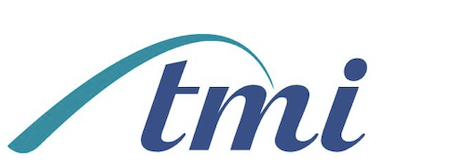What is Professional Development?
Professional Development, or Continuing Professional Development (CPD), can be a bit of a daunting concept. In fact, it is something we are all doing without necessarily adding anything extra. As much as anything it’s about seeing everything we do as an opportunity to learn and develop our skills and experience.
In this section, we explain what CPD is, what it is not and how you can benefit. What counts as eligible CPD sets out the different types of CPD and relates to the sections in the My Professional Development Planning template, a tool which is designed to help you think about your own ambitions and aspirations, and plot what you need to do to achieve them. In our Professional Development Resources section you will also find a template for recording your professional development activity so you can keep track of what you’ve done.
Continuing Professional Development (CPD) is:
-
A personal commitment to keeping your professional knowledge up to date and improving your capabilities - helping you to be an even better professional.
- Focussed on what you learn and how you develop throughout your career.
- Focussed on the individual, so you decide what, when and how much you do.
- Formal learning – courses, qualifications
- Professional learning – conferences, seminars, coaching, mentoring, networking, taking part in working groups
- Informal learning – reading, keeping up to date
Continuing Professional Development is not:
- Imposed on you from above or outside – you decide what you want to do.
- Hard work – you’re probably already doing CPD, perhaps without realising it
How will you benefit from CPD?
- Commitment to your own CPD will give you greater job satisfaction.
- New and improved skills mean tricky tasks become easier.
- Increased skills, knowledge and confidence in your professional abilities
- Employers will be more likely to recognise your talents.
- Enhance your CV and really show what you can do, so when you’re next looking for a promotion, salary increase or new job, you’ll be at the front of the queue.
How will you benefit from keeping a record of your Professional Development activity?
It will help you keep track of your CPD activity:
-
Books and journals you read
- Courses you’ve been on
- Informal CPD you’ve been doing, like coaching a colleague, leading a workshop or taking part in a working group.
- What your key learning points have been
- How you plan to apply them
So when it’s time for your annual appraisal, to apply for a new job or update your CV, you’ve got all the information at your fingertips. More importantly, at the end of the year, you can look back and see how far you’ve come, how much you’ve achieved. TMI members can download a template for recording their own professional development activity from our Resources section.
What counts as eligible Continuing Professional Development Activity?
TMI recognises a variety of CPD activities, which fall broadly into three categories: structured professional learning, work based professional development and unstructured professional development activity.
Structured professional learning includes:
- Attending seminars, courses or workshops, including on-line and CD-ROM based courses (e.g. taking part in VocMat pilot, or EUTO Annual Study Visit)
- Continuing education leading to qualifications (part time, full time, distance learning)
- Long term research projects (6 months+)
Work based professional development includes:
- Attending networking events(e.g. TMI regional meetings)
- Attending conferences (e.g. TMI Annual Convention)
- Staff training, preparation of training materials
- Coaching/mentoring
- Preparation/presentation of papers for conferences, meetings or publication
- Active participation in TMI or other destination management related working groups
- Work shadowing, secondments, on-the-job training
Unstructured professional development includes:
- Private study (e.g. reading destination management related books, on-line research, reading destination management/tourism journals and periodicals)
- Attending exhibitions relevant to destination management
- Submitting responses to TMI member consultations
These lists are by no means exhaustive and if you are unsure about any resource or activity and whether it contributes to your professional development, please contact Joyce Cawthorpe
